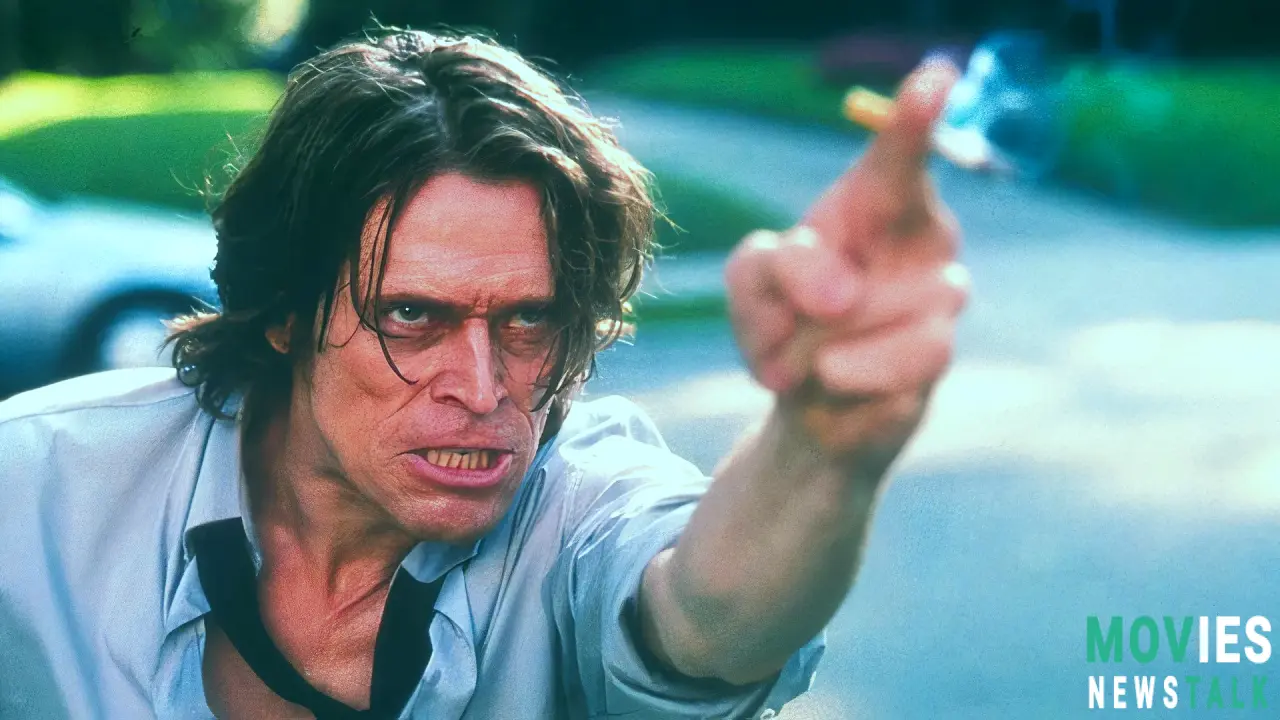Boondock Saints Director Confesses: A Tarantino Rip-Off Confession!
Troy Duffy's Boondock Saints: An Unabashed Tarantino Homage (or a Total Rip-Off?)
Troy Duffy's Boondock Saints (1999) is a cult classic—a seriously crazy film about twin brothers (Connor and Murphy MacManus) who go full-on vigilante, cleansing Boston of crime. This wild ride starring Willem Dafoe, Sean Patrick Flanery, Norman Reedus and more has some hardcore fans—but critics hated it. This action-packed thriller might sound fun; yet there was another point that made everyone pay more attention – namely the style that had influenced the entire work. This influenced the plot greatly and led to even further scrutiny about how the film made use of another established cinematic style.
Recently, on the film’s 25th anniversary, Duffy gave a bombshell interview with Screen Rant . And he happily admitted something major – he totally ripped off Quentin Tarantino’s style, specifically for those scenes featuring Willem Dafoe. He praised how Tarantino used flashbacks unconventionally in films like Reservoir Dogs — inspiring Duffy to try something similar—but with a personal touch. And he stated in an interview: “In Reservoir Dogs, they went through that extensive flashback sequence where Tim [Roth] wrote the script of the story he was going to tell to the mobsters, and then he's in the bathroom explaining it right in front of the barking dogs. I realized the usual experience an audience would have in a flashback was this lazy [connection from] A to B to C. When I saw Tarantino do that, I'm like, “My God, you can do anything. That's a whole new way to tell a story, not just connect the dots.” So I decided, “I’m going to rip him off,” but whenever I do that, I have to do it in my own way.”
Duffy's Confession: More Than Just a Flashback?
This confession about the plot involving Tarantino's influence on the scenes isn’t actually a revelation. The criticism has raged for almost 25 years, especially following the film’s release and that extremely low 26% Rotten Tomatoes score; a truly terrible evaluation. Critics immediately criticized the blatant imitation of Tarantino’s signature style— especially from his early work in Reservoir Dogs and Pulp Fiction; highlighting these important details surrounding narrative structures and stylistic violence which all impacted the story.
Tarantino’s nonlinear storytelling in Reservoir Dogs and Pulp Fiction is famous. Boondock Saints uses similar flashbacks, especially in those vigilante scenes, and that use of those sequences showing aftermath before events happen mirrors that signature disjointed approach— something popularized and perfected by Tarantino; making the style a core thematic point for Tarantino’s fanbase! Duffy’s admission concerns only the structure; leaving his clear mimicry of Tarantino's stylistic violence (and dialogue) unacknowledged – something equally obvious. The actual plot was also equally derivative, with those violent sequences, similar dialogue and narrative, only making it incredibly obvious why this whole endeavor fails at several crucial junctures which all critically affect the production of this film and the way it is perceived today.
Our Take: Homage or Just Plain Theft?
Duffy’s confession makes one point glaringly clear: Boondock Saints is a poor copy rather than a clever tribute! The film might be adored by fans but it heavily relies on Tarantino’s stylistic trademarks—the nonlinear storytelling, over-the-top violence, anti-hero characters— but it's a totally inferior creation; lacking that originality which helped the films from Tarantino achieve that special flair! It successfully copies stylistic traits that remain obvious upon re-examination, yet those same qualities lack the inherent sophistication of Tarantino's own works; highlighting just how much quality really separates creative attempts from attempts at creating shallow imitations, simply copying those styles alone.
Conclusion: Boondock Saints's Enduring Legacy and its Troubling Inspirations
Boondock Saints might be an undeniable cult classic! Yet it clearly demonstrates just how significant plagiarism is. It remains memorable due to those qualities that derive from earlier films; and in particular how obvious Tarantino’s impact upon Duffy's choices clearly remain! Its success despite this reliance on derivative work suggests that sometimes success happens not due to genuine creativity but simply through appropriating those same qualities inherent within films known and loved for these elements!

